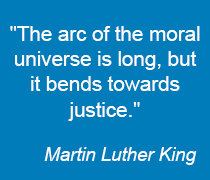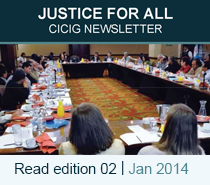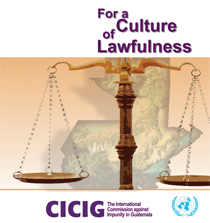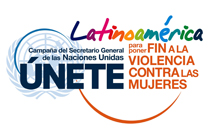|
 It was in Italy in the 70’s where a term was coined that is now used at the international level: Pentiti, plural of Pentito, a person who forms part of a criminal or terrorist organization and after being arrested "repents" and decides to collaborate with the Judicial System in the investigations that involve his or her organization. The purpose of this is to obtain benefits in exchange for the information provided. It was in Italy in the 70’s where a term was coined that is now used at the international level: Pentiti, plural of Pentito, a person who forms part of a criminal or terrorist organization and after being arrested "repents" and decides to collaborate with the Judicial System in the investigations that involve his or her organization. The purpose of this is to obtain benefits in exchange for the information provided.
The judicial category of the “pentiti” look to reduce their prison sentences, gain freedom and in certain cases protection, change their identity- and where it exists- enter a witness protection programme. In this regard, Judges like Giovanni Falcone fought against the Sicilian mafia “Cosa Nostra” of Italy.
In Guatemalan, Congress recently approved the reform of the Law against Organized Crime (Decrees No.v17-2009 and No. 23-2009), proposed by CICIG, on Effective Collaboration in Criminal Proceedings, which seeks to contribute to criminal investigations of organized crime through the use of effective collaborators. This legal device gives certain benefits to persons who have committed criminal acts under the condition that they cooperate with the court in the criminal prosecution of organized crime.
While the use of the effective collaboration device will aid investigations, there are specific restrictions, such as the crimes of genocide, forced disappearance, extrajudicial executions, torture and crimes against humanity, that for their status of atrocious crimes, are not considered eligible for benefits. In equal form, the benefits of plea bargaining, conditional suspension of criminal prosecution or dismissal are not provided to the bosses, leaders or instigators of criminal organizations.
It is necessary to understand the difference between a collaborator and an undercover agent. Both give prosecutors or investigative police valuable inside information about the criminal network or organization. The difference lies in the fact that the effective collaborator is a casual collaborator who, for his or her position within the structure, has privileged information such as the modus operandi, who integrates the organization, what are its financial resources, etc. And they have to be given an incentive in exchange for this information. On the other hand, an undercover agent is a public official or servant who works under the mandate of the State.
The benefits or incentives that are offered to the effective collaborator can be positive or negative from the perspective of the collaborator, who estimates his benefit based on the quality of the information provided in exchange for a more lenient sentence.
In Colombia, there exists the Law of Justice and Peace, which in essence is a law of effective collaboration because it creates an incentive for paramilitaries to demobilize from their criminal organizations and provide information to state institutions in order to dismantle the criminal organizations.
In Italy, pentiti are usually people who have ample knowledge of the criminal network and in many cases are the ones who handle information about the organization's financial structure. From the logistical point of view, these people are the ones who know in detail the transactions and objectives of the network to which they belong. With the information they provide, they help to dismantle the backbone of their organizations.
|


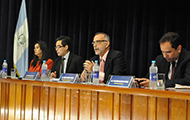
 It was in Italy in the 70’s where a term was coined that is now used at the international level: Pentiti, plural of Pentito, a person who forms part of a criminal or terrorist organization and after being arrested "repents" and decides to collaborate with the Judicial System in the investigations that involve his or her organization. The purpose of this is to obtain benefits in exchange for the information provided.
It was in Italy in the 70’s where a term was coined that is now used at the international level: Pentiti, plural of Pentito, a person who forms part of a criminal or terrorist organization and after being arrested "repents" and decides to collaborate with the Judicial System in the investigations that involve his or her organization. The purpose of this is to obtain benefits in exchange for the information provided.